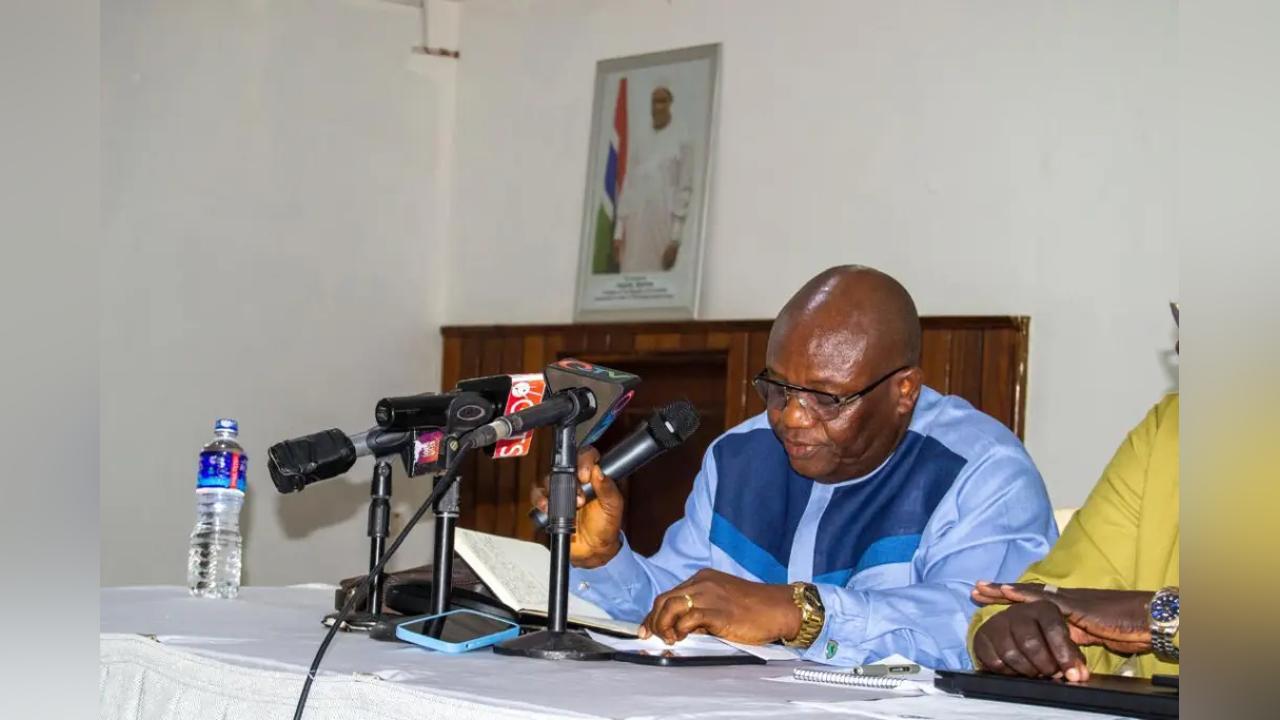Africa-Press – Gambia. The Political Adviser at the Economic Community of West African States (ECOWAS) Claude Kondor, has reaffirmed the bloc’s commitment to supporting ongoing reforms in The Gambia.
He made this remark on Tuesday July 1, during the opening of a three-day workshop for 22 staff members of the Gambia Center for Victims of Human Right Violations focused on the African Union Transitional Justice Policy (AUTJP) and the Government White Paper (GWP). The event was held at the Paradise Suites Hotel.
Kondor noted that ECOWAS’s involvement was not limited to victims’ reforms but extends to all developmental reforms currently underway. He recalled that since ECOWAS came to The Gambia in 2016, it has established a permanent mission and deployed troops, adding that the organization has been closely monitoring the transitional justice process, including security sector reforms.
He emphasized that this commitment stemmed from the understanding that peace, security, stability, and justice are interlinked. “The timeliness of this training cannot be overemphasized. I hope that this training yields its purpose at the end of the sessions,” he said.
Kebba Jome, National Coordinator of the Victims’ Centre, underlined that the project was paramount to the Centre’s activities. He thanked the donors for their continued support and urged participants to ask critical questions so that others may benefit and become more aware of African transitional justice and the Government White Paper.
Sainey Seghore, a survivor of the April 10th 2000 incident, stated that popularizing the AUTJP and the Government White Paper on the TRRC Recommendations aimed to enhance victims’ participation in the ongoing transitional justice process in The Gambia.
“This project is funded by the Africa Transitional Justice Legacy Fund (ATJLF) and is being implemented as part of the African Union-European Union Initiative for Transitional Justice in Africa.”
In his presentation, Lamin Sanyang the resource person says modern African state is often seen as a product of colonial rule, leading to systemic issues of power and governance, historical injustices and socioeconomic disparities.
“Transitional justice in Africa cannot be understood without considering the historical and political context, including the legacies of colonialism and post-colonial state structures. These factors significantly influence the nature of violations and the effectiveness of justice mechanisms,” Sanyang explained.
For More News And Analysis About Gambia Follow Africa-Press






